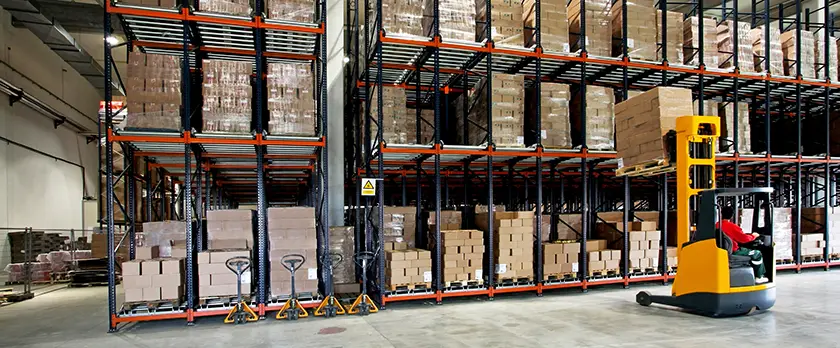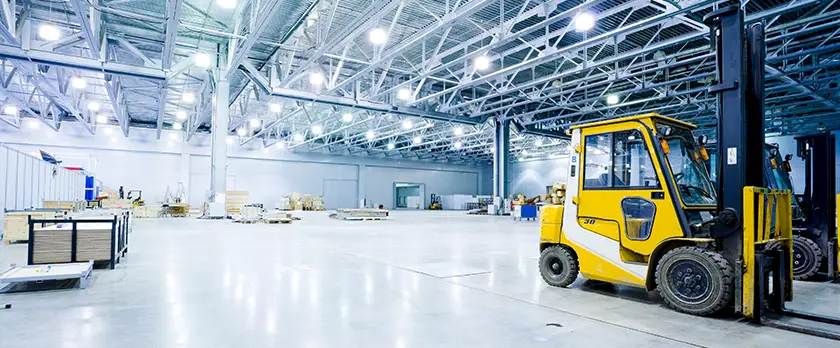UK Bonded Warehouse
Tell us about your shipmentDFS Worldwide bonded warehouses are secure, clean, well equipped with the latest technology and operated by our experienced warehouse staff. We can store and distribute your goods anywhere across the globe.

Our Warehouse
- Cargo Loading and Unloading
- Cargo Labeling and packing
- Customs ERTS bonded facility
- Short and Long term storage
- Fumigation, pest control and REST service
- Cargo Distribution
- Pick and pack service
TSO - Transit Shed Operators
Our European head office in the UK is a customs ERTS bonded warehouse allowing us to remove import shipments customs uncleared direct onto our facility for 3 reasons:
1- Free UK storage up to 3 days!
The benefits of using DFS Worldwide to handle your cargo include free storage up to three days as opposed to 24 hours in the Transit Shed Operators (TSO) warehouses, superior service with no queuing time involved, flexible and friendly staff available 7 days per week.2- Ensuring your freight is stored in a secure warehouse.
In addition we can receive goods arriving by road under customs bond from the EU and non EU countries direct into our facility for customs clearance. Transshipment services are available for UK terminating AWBs with an ultimate destination to another country for the cargo.3- Consolidation and distributions
Our bonded facility enables our customers to import over hundreds of consignments from all over the world to the UK in form of one consolidation shipment. DFS then removes the goods to its bond and custom clears each individual consignment and distribute each individual shipment to your selected customer within Europe. Re-issue of a new AWB, relabeling, repacking are all part of the services available.
4- Amazon FBA
With our bonded warehouse located minutes away from London Heathrow airport and our strong partnerships with our Chinese Freight forwarders, we have created a perfect platform for Amazon FBA.
Bonded warehouses provide specialized storage services such as deep freeze or bulk liquid storage, commodity processing, coordination with transportation and are an integral part of the global supply chain.
Our UK bonded warehouse is open 7 days a week to help customers with speeding clearance and delivery. This will also saves weekends storage charges from airlines.
Bonded Warehouse FAQ
 What is a UK Bonded Warehouse
What is a UK Bonded Warehouse
A bonded warehouse is a building or other secured area in which dutiable goods may be stored, manipulated, or undergo manufacturing operations without payment of duty.
Upon entry of goods into the warehouse, the importer and warehouse proprietor incur liability under a bond.
This liability is generally cancelled when the goods are:
- Exported; or deemed exported
- Withdrawn for supplies to a vessel or aircraft in international traffic
- Destroyed under Customs supervision
- Withdrawn for consumption domestically after payment of duty.
While the goods are in the UK bonded warehouse, they may, under supervision by the customs authority, be manipulated by cleaning, sorting, repacking, or otherwise changing their condition by processes that do not amount to manufacturing.
After manipulation, and within the warehousing period, the goods may be exported without the payment of duty, or they may be withdrawn for consumption upon payment of duty at the rate applicable to the goods in their manipulated condition at the time of withdrawal.
Our UK bonded warehouses provide specialized storage services such as deep freeze or bulk liquid storage, commodity processing, and coordination with transportation, and are an integral part of the global supply chain.
Customs warehouses are premises or systems that are authorised and supervised by HMRC.
Entering your goods to customs warehousing means you can delay paying customs duty, import VAT, and where appropriate excise duty, until the goods leave the customs warehousing procedure or enter another customs procedure. You can also use customs warehousing when your goods have arrived in the UK and:
- You want to re-export them
- You are uncertain about the final destination of your goods upon arrival
- Your import licenses or paperwork have been delayed or you are waiting for a duty-relief quota to become available in respect of, for example, agricultural goods
- You want to discharge another customs procedure such as Inward Processing for non-excise goods.
- You wish to store your goods together with goods subject to another customs procedure with economic impact (eg Processing under Customs Control, Inward Processing) or with goods that are already in free circulation.
To be eligible for customs warehousing, your goods should have been imported from outside the European Union (EU) and be liable to customs duties and/or import VAT, or be moving in duty suspension from another member state i.e. the goods have been entered to a duty suspension procedure in another member state or are moving under Community Transit.
You can also, if suitably authorised, use the customs warehouse procedure to store Cap goods that are eligible for an export refund or Community goods under the common or co-storage arrangements.
Goods subject to prohibitions or restrictions must be presented with the appropriate supporting documents at the EU frontier. Meat or meat products must also have been subjected to frontier veterinary checks prior to their entry to the customs warehousing procedure. There are usually no time limits for storing goods, except CAP goods.
Enter goods into a Customs bonded warehouseTraders can enter goods into a customs warehouse in several ways:
- directly from import (including from Community Transit)
- from a Free Zone
- after Inward Processing
- after Processing under Customs control
- after repayment of import duty has been approved on rejected imports
- after temporary admission
When your goods are released from the customs warehousing procedure, you may have duties and taxes to pay. You can work them out using:
- the Tariff description (from Volume 2 of the Tariff) and rate of duty
- the quantity and/or the value
- HMRC official rate of exchange
You may also have to pay import VAT at this time.

